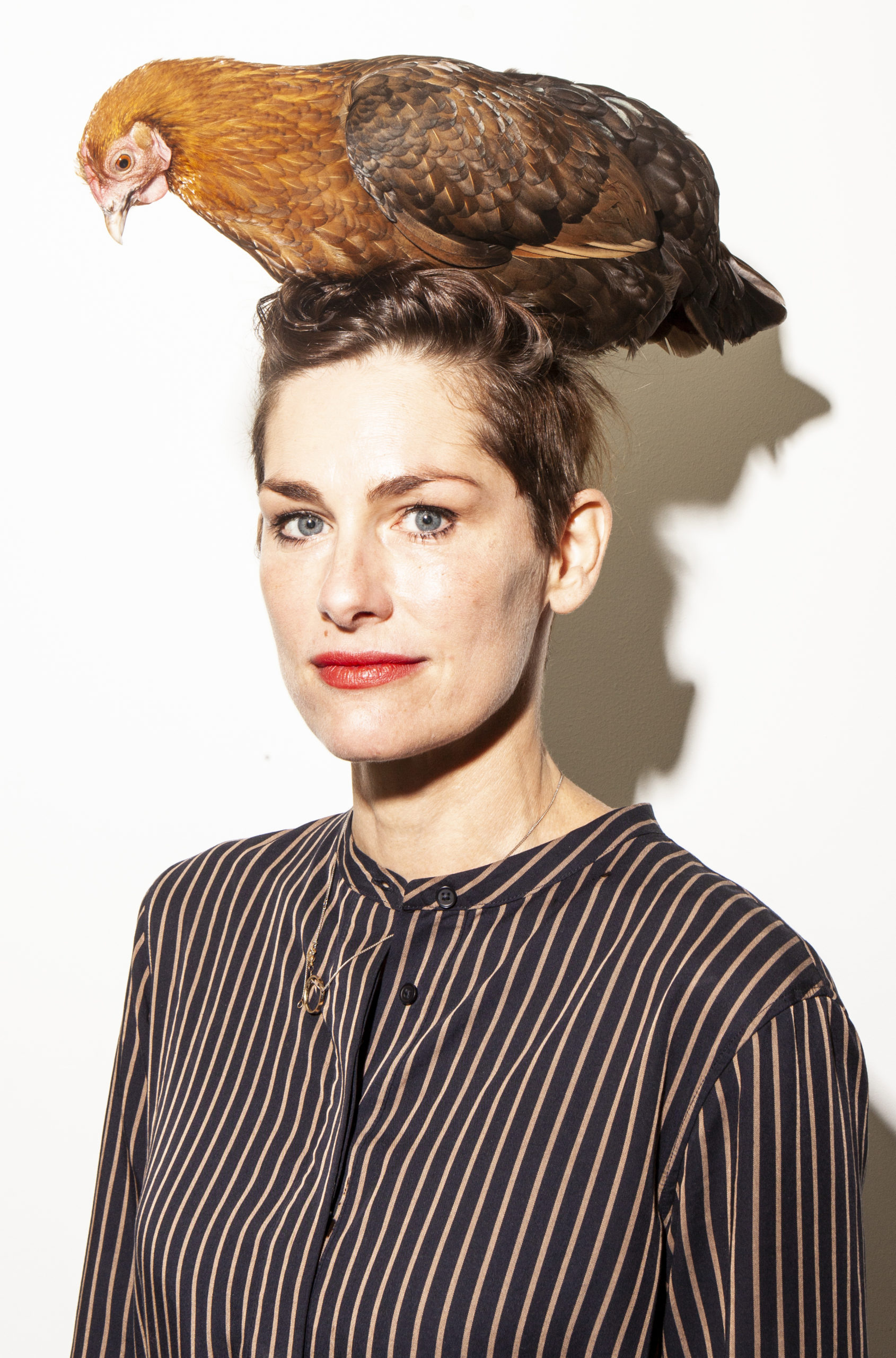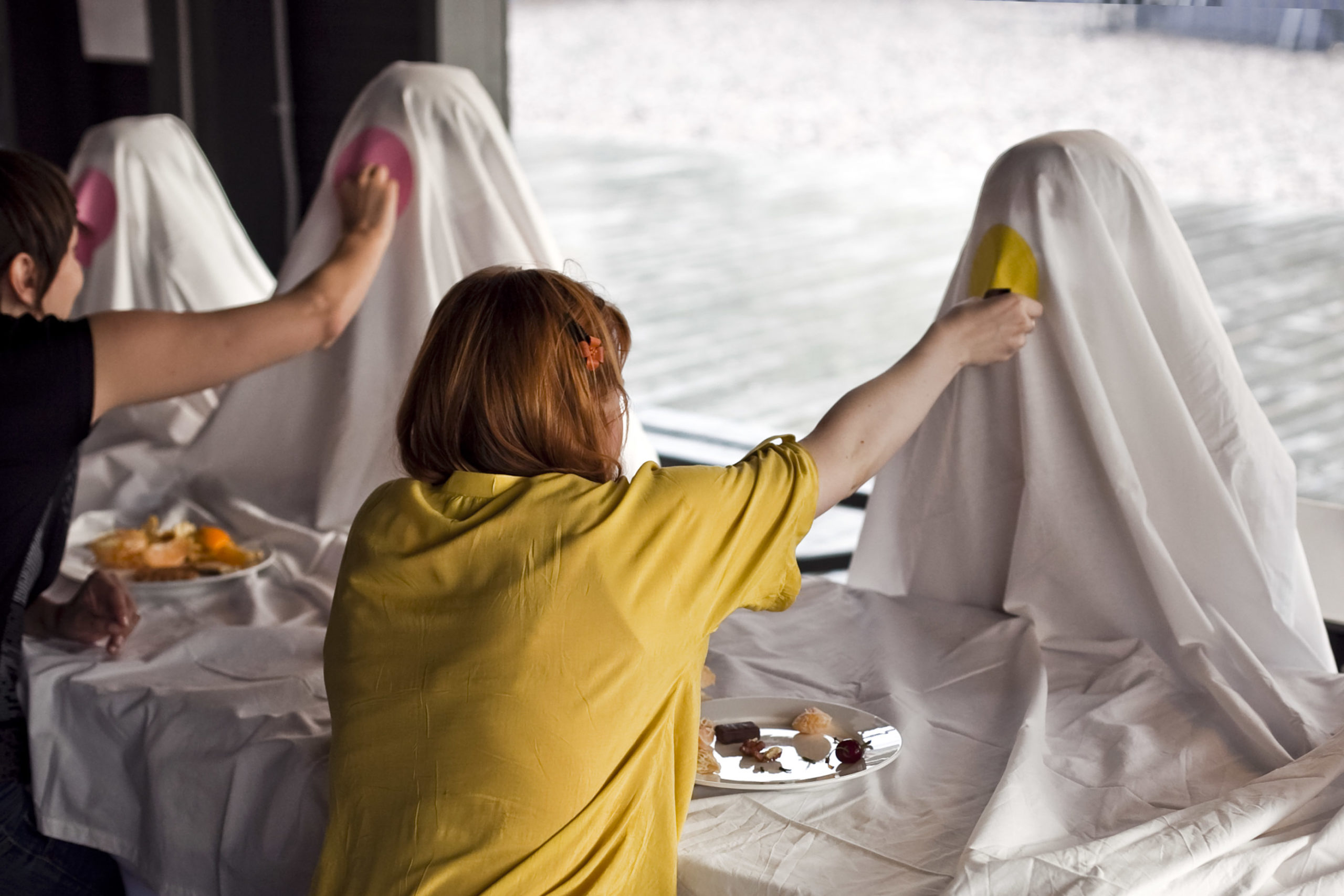KAIROS 16 – OBJECT 16
object: a pen
Kairos moments. I’ve had many of them. Small ones, larger ones. The moment you listen less to what you think you should do or what you think other people expect of you the more Kairos comes to visit. I used to be a lousy Design Academy student. I was very young and trained in secondary school to do what I was being told. Not to explore by myself. After I was almost kicked out of the academy I decided to try one more time and now only do what I wanted to do. This is when I found food.


ON Marije Vogelzang
Food, at that time was absolutely not accepted as a subject for design. This made me doubt my choice but I saw the effect my creation had on people eating the food I made and I remembered the joy I felt when creating a food experience. I decided that my personal fascination was my guide and I only focused to the pleasure and excitement that came from people who experienced my work. I decided to ignore all the negative voices and also my own critical inner voice who told me that I would never be a real designer. Because real designers make lasting objects.
I found out that my gut is my best guide and I still use this as inner compass. After more than 20 years I am at the base of a global movement of food and design and do not only teach food and design but also strategies that help creatives meet kairos on demand.
Founder of Studio Marije Vogelzang
www.thedifd.com
Head of Food Non Food Department Design Academy Eindhoven
www.designacademy.nl
KAIROS 16 – A Talk with Marije Vogelzang – 29 Participants
Zusammenfassung
Marije Vogelsang // Kairos 16
Marije’s KAIROS object is a pen. The moment of holding a pen to write about your dream or ideas, that is her pivotal moment. As a designer makes intangible thoughts tangible to change the world. Your powerful potential of design, even the life starts from your pen. She made lots of moments of her life, dream, solving problems on paper, started with a pen. So it’s not only about designing an object but also consciously drawing dreams, that is her KAIROS moment and it’s a design of your life.
When Marije Vogelzang graduated from school, she was worried and confused about choosing one subject to focus on, which is food. But though she chose one subject, everything was connected each other. She could open up the whole new world and could find endless exploration. She was interested in ritu- als of eating, cultural, social, emotional part of food. That was her first trigger of starting her own universe.
Marije discovered so much after her studies in 1999. She brought up the concept of slow food. She focused on designing something part of the body. She could collaborate with many specialists in agriculture and scientists. She opened her first restaurant in 2004 to introduce her concept, but people didn’t understand it at that time. But she learned so much with her sensory approach to food, micro food, bacteria and so on. Her subjects on food are always changing.
It is important to have creativity in food cycle. It is a crucial aspect to know where the food grows, how it is consumed, where do shits and pees go. We need to design a desire. We are facing endless demand of toilets, practical design for artificial fertilizer. We don’t need to go back to primitive life, we have to use, benefit by high technology development. We merge our desire and tech together for a large scale systems like a bio-dynamic farming. It’s not only about the technical part, but also a coherence of vision and thinking.
Synthetic biology is intriguing by the topic, but we have to design ethical standards ahead. It can be designed.
Food industry and development with technology are growing so fast. Farming is not only the word for countrysides. Cities provides efficient in energy, collecting shits and pees, it uses smartly already.
She sees the problem is that people who grow up in the cities don’t have chance to touch the real soil or sand. It is so important to get our hands on dirts. Microbiome is very important for our body.
Another interesting topic on food is food waste. The real problem is not the numbers of waste in general. It is not the food or system. The real problem is
human desire. We can value our food more expensive so that consumers approach more ethically and appreciate it more. It is a strange paradox in the land of plenty which our ancestors dreamed of. It is fascinating paradox.
For designers, it is important to take part in social aspects, aspect of desire, advertising and to frame something different, different perspective. For exam- ple, we don’t need to worry about the tab water, we have to think about the taste of tap water. Food design is about food but not about food, food is in be- tween.
Big chain supermarkets or big brands are not really interested in changes of ethical approaches. They want conventional changes for their customers. She can’t find any inspiration working with those companies.
In Corona crisis, it is very hard to design sensorial experience. But senses are always with us. There are always new ideas of senses. For example, we can design sample boxes from farms and supermarkets or we can design a restaurant for outdoor eating experience. There are still lots of spaces to design.
Sanghyeok Lee
